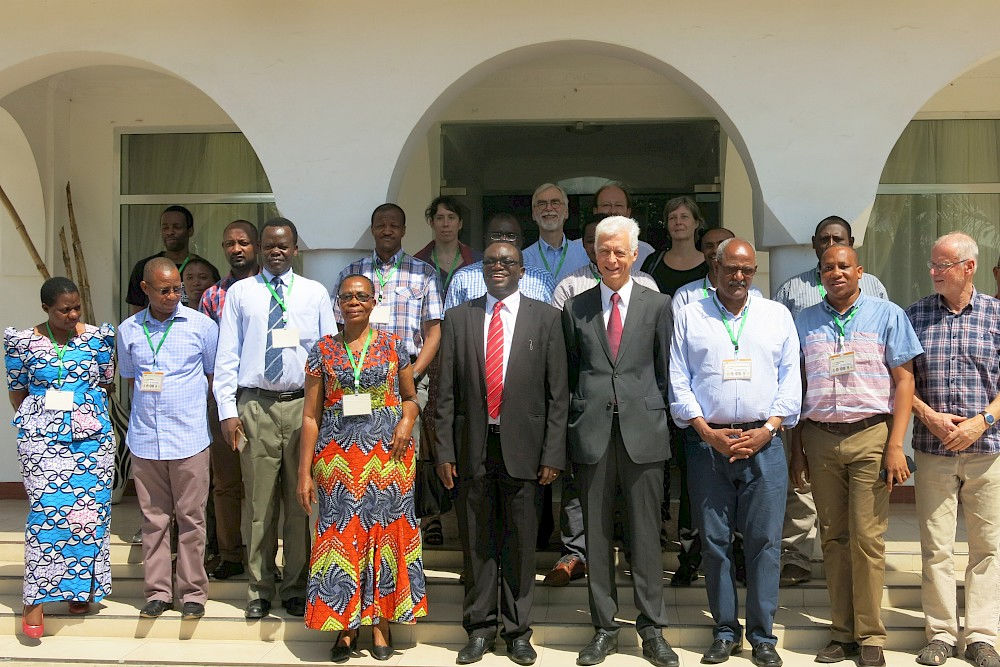Project on medicinal plants in Africa: first workshop in Tanzania

From 14 to 18 November 2017, the first workshop of the Tri-Sustain project took place in Bagamoyo, Tanzania, near the metropolis of Dar-es-Salam. The young researchers involved in the project were introduced to preparatory work and analytical and therapeutic methods. The workshop was also attended by Banyatsi Setilo, chairman of the umbrella organization of traditional healers in Botswana.
However, it increasingly happens that the medicinal plants no longer occur at their collection points. In his keynote address, Setilo cited the most common reasons for the decline of medicinal plant populations: The clearing by uninformed people who earn a lot of money in urban areas with the medicinal plants and do not know how to do sustainable harvesting. The state is responsible for the forests. The inhabitants, who are the witnesses of the deforestation, have no claims to control these clearing actions."
Dr. Marks Dithlhogo of the University of Botswana also mentioned other reasons for the threat to medicinal plants: "Climate change, fires and the destruction of habitats also play a significant role." The researchers are agreed: the cultivation of medicinal plants is of high importance for therapeutic purposes and would also make a significant contribution to the conservation of natural resources. At the workshop, several plants were selected that should be tested for their healing effects and the cultivation of which should be finally pursued.
These issues are addressed of within the “Tri-Sustain”-project. This project is funded by the German Federal Ministry of Education and Research (BMBF), and the German Academic Exchange Service (DAAD), nd its goal is to secure the bio-economic, ecological and therapeutic sustainability of medically used medicinal plants in Southeast Africa.The focus is on medicinal plants that have an effect against HIV, tuberculosis and worm diseases. The project is characterized by a high degree of interdisciplinarity. It is managed by Martin Luther University. The Halle site already has many years of experience in isolating active substances from medicinal plants (MLU, Institute of Pharmacy), structuring and testing effects against worm diseases (Leibniz Institute of Plant Biochemistry) and their use in dermatology (MLU, Associated Institute for Applied Dermatopharmacy). The African partner universities in Tanzania, Botswana and Ethiopia are contributing their knowledge of native medicinal plants and applications, as well as testing their effectiveness against HIV, the AIDS pathogen. In the project, junior researchers (PhD students) are active in all participating institutions.

Kommentare
Ramona am 01.08.2018 10:52
Super Workshop, bin begeistert!
Macht weiter so.
Liebe Grüße
Ramona
Reply